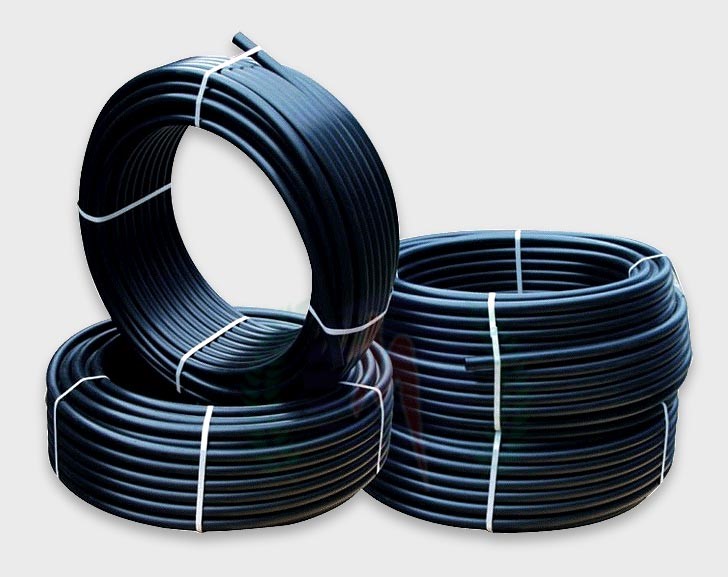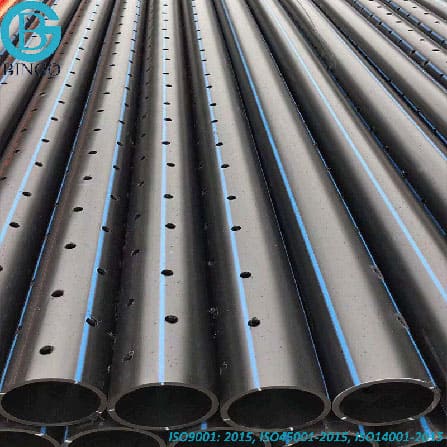Pipe Manufacturing Midland TX: Behind the Scenes
A Comprehensive Guide to the Different Uses HDPE Pipeline in Building and Industry
HDPE pipelines have become a critical part in modern building and construction and industrial applications. Their distinct homes, such as resistance to rust and lightweight style, make them appropriate for a large range of usages. From supply of water systems to farming watering, HDPE pipes provide solutions that enhance effectiveness and sustainability. Comprehending their varied applications is necessary for specialists wanting to optimize infrastructure. What particular benefits do these pipelines bring to each market?
Water System and Distribution Solutions
Water system and distribution systems are important components of metropolitan infrastructure, usually relying upon high-density polyethylene (HDPE) pipelines for their sturdiness and efficiency. These systems transport potable water from therapy centers to customers, ensuring accessibility and safety and security. HDPE pipelines are favored for their resistance to rust, chemicals, and severe temperatures, which boosts their longevity and minimizes upkeep prices. Additionally, their lightweight nature enables much easier installation and transport, making them suitable for different urban and country applications.
The adaptability of HDPE pipes enables them to be mounted in limited spaces and around obstacles, decreasing the need for comprehensive excavation (American Plastics HDPE Pipe Manufacturing). Their smooth indoor surface minimizes friction losses, enhancing water flow prices. As cities proceed to grow, the need for reliable supply of water systems boosts, positioning HDPE pipes as a sustainable option for modern-day infrastructure projects. Their tested performance history makes them a preferred selection among engineers and city planners alike
Wastewater Administration and Treatment
Efficient wastewater management and therapy are crucial for maintaining public health and wellness and environmental top quality. HDPE pipelines play a vital duty in this process because of their sturdiness, resistance to deterioration, and ability to hold up against severe chemicals. These pipelines are typically made use of in different applications, including sewer system, stormwater water drainage, and wastewater therapy centers. Their light-weight nature helps with less complicated installation and transportation, decreasing labor costs and time.
Additionally, HDPE pipes have a smooth interior surface area that decreases friction loss, advertising effective circulation rates. They are also less vulnerable to leaks and failings contrasted to typical products, ensuring that pollutants are consisted of properly. Their flexibility allows for versatility in different soil conditions, making them suitable for varied ecological settings. As markets progressively prioritize lasting methods, making use of HDPE pipes in wastewater administration systems aligns with goals for minimizing ecological influence and enhancing resource healing.
Agricultural Irrigation Solutions
In farming settings, effective irrigation services are essential for optimizing plant returns and taking care click to find out more of water sources. HDPE (High-Density Polyethylene) pipes play an important role in modern why not look here watering systems as a result of their toughness, adaptability, and resistance to deterioration. Their capacity to endure high pressures makes them optimal for both surface area and subsurface watering applications, ensuring uniform water circulation throughout areas.
Farmers can utilize HDPE pipelines in drip watering systems, which supply water directly to plant roots, lessening wastage and promoting healthy growth. Additionally, these pipes are light-weight and simple to mount, decreasing labor prices and setup time. Their long life expectancy and reduced upkeep requirements better enhance their allure in farming techniques.
In addition, HDPE pipelines are eco pleasant, as they can be reused and do not leach unsafe chemicals right into the dirt. This makes them a lasting selection for farmers aiming to take on environment-friendly agricultural methods while optimizing performance.
Industrial Applications and Processes
Flexibility is a hallmark of HDPE pipes, making them vital in various commercial applications and processes. These pipelines are widely used in chemical processing industries due to their superb resistance to a wide variety of harsh substances. HDPE's light-weight nature, integrated with high tensile pipe freezing services stamina, enables very easy setup and long-lasting performance sought after settings.
In the oil and gas sector, HDPE pipelines play a vital duty in transferring hydrocarbons and gases, thanks to their resilience and flexibility - American Plastics HDPE Pipe Manufacturing. In addition, they are used in mining operations for the transportation of slurry and other materials, where typical piping systems might stop working
HDPE pipelines are increasingly utilized in manufacturing centers for water supply lines and wastewater management. Their ability to endure severe temperature levels and stress makes them ideal for a selection of commercial processes. Overall, HDPE pipes contribute significantly to efficiency and safety and security throughout varied commercial applications.
Stormwater Administration and Drainage Systems
Stormwater administration and drain systems are crucial components in city framework, created to take care of excess rains and decrease flooding risks. High-density polyethylene (HDPE) pipes are progressively used in these systems as a result of their longevity, versatility, and resistance to deterioration. These pipelines successfully carry stormwater away from populated areas, lessening surface runoff and preventing waterlogging.
HDPE's light-weight nature assists in much easier installment, lowering labor expenses and construction time. Furthermore, its resistance to chemicals and environmental stress factors guarantees long life and dependability in different climates. In enhancement to traditional water drainage applications, HDPE pipes are likewise utilized in innovative services such as environment-friendly infrastructure, which includes rain gardens and absorptive sidewalks.

Frequently Asked Questions
Just How Does HDPE Pipe Compare to PVC Pipe in Expense?
In general, HDPE pipeline has a tendency to be extra pricey than PVC pipe as a result of its enhanced longevity and versatility. Lasting cost considerations, such as maintenance and life-span, may favor HDPE in specific applications.
What Is the Life-span of HDPE Water Lines Under Diverse Problems?
HDPE pipes normally have a lifespan of 50 to 100 years, depending on environmental problems, setup techniques, and use. Variables such as temperature, dirt type, and exposure to chemicals can greatly influence their durability.
Can HDPE Pipeline Be Recycled After Usage?
Yes, HDPE pipelines can be reused after use. The reusing process entails melting down the material, enabling it to be repurposed right into new products, consequently promoting sustainability and reducing ecological impact connected with plastic waste.
Are There Any Kind Of Details Installment Difficulties With HDPE Pipes?
Installment difficulties with HDPE pipes consist of proper jointing techniques, making certain adequate trench conditions, and taking care of thermal development. Additionally, experienced labor is required to deal with customized devices, which can make complex the installation procedure in numerous environments.

What Accreditations Should I Try To Find When Investing In HDPE Water Lines?
When buying HDPE pipes, one should try to find accreditations such as ASTM, AASHTO, and ISO, which verify top quality and conformity with sector standards, ensuring longevity and efficiency in numerous applications. - Midland TX HDPE Pipe Fittings in Stock